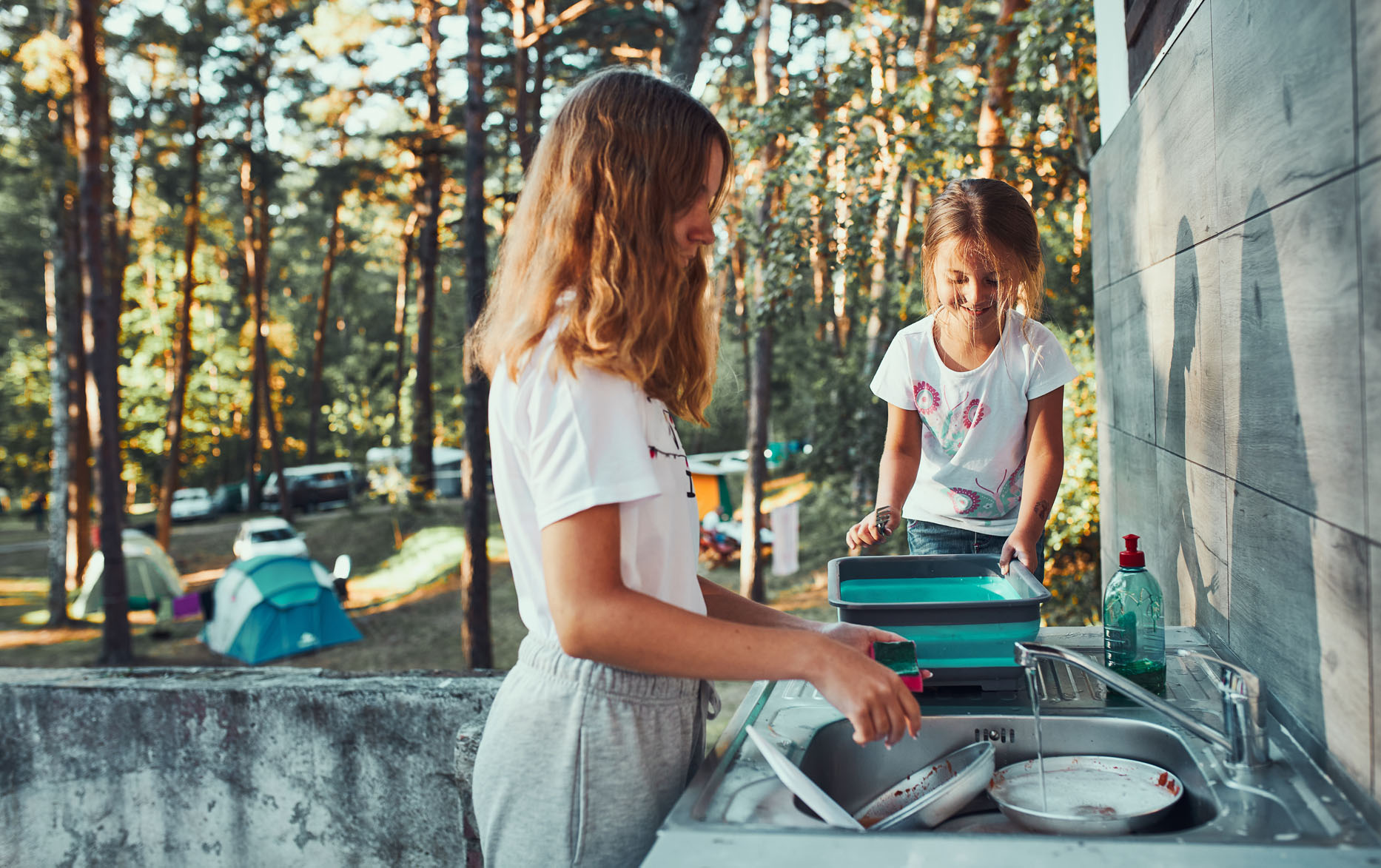

Camping is one of summertime's greatest adventures. The fresh air and beautiful surroundings are picture-perfect escapes from the trappings of technology, traffic and daily routines. Nature hikes, hammock naps and relaxing in front of the campfire with friends & family are just a few reasons why "roughing it" is a time-honored tradition.
A journey into the Great Outdoors is among the only adventures in life where you can temporarily 'pause' life's responsibilities, unleash your wild spirit, howl at the moon, tell scary stories and sleep under the stars in a low-cost, high-value environment. There's nothing quite like finding the perfect spot, pitching your tent among the beautiful scenery and drifting off to sleep to the soothing sounds of nature with a belly full of s'mores.
As your adventure comes to an end, and it's time to pack up and head back to the daily grind, there are a few important rules to remember for keeping your gear in great shape for future camping trips - and keeping your impact on nature to a bare minimum.
Below you'll find an important list of Camping Cleanup Dos and Don'ts, to help you stick to the Leave No Trace principle for preserving the wilderness.
DON'T
Leave campfires burning, smoldering, smoking… nothing.
If it's too hot to touch, it's too hot to leave. Period. Forest fires are potentially devastating, and can claim lives and homes while causing great harm to the environment. If you're ready to head out but your fire is still burning, use a stick or shovel to separate the wood from the embers to help slow the fire down. Then slowly pour water on the fire until it's completely extinguished, and the steam hissing stops. Stir up the ash to see if any burning embers remain underneath, and repeat the process.
DO
Clean your marshmallow pokers before heading home
Some people use sticks, which should stay at the campsite (or added to the kindling for your campfire), while others prefer to bring their own marshmallow pokers, usually made of metal. If left untended after the s'mores feast, you could be facing a sticky ride home – transferring the gunky residue all around the car, and potentially inviting ants and other insects.
DON'T
Track dirt and mud into the car
If you've been camping and/or hiking for a several days, encountered inclement weather or gotten otherwise seriously dirty, you should bag up your camping shoes as you and the family climb back in the car for the ride home. This will cut down on the car cleaning job you'll be facing at the end of the journey. Nobody wants to have to scrape caked mud and dirt out of their vehicle upon return home, when you'd rather be focused on catching up on life, housework and unpacking.
DO
Dispose of your cooking oil properly
If you've brought the gear for a full culinary adventure on your camping trip, responsible cleanup is a must for safety and environmental consideration. Let your cooking oil cool completely before you dispose of it, to prevent burning yourself. Once cool, pour it into non-breakable container with a resealable lid, and place it in a trash container. If one isn't available, take it with you when you leave to dispose of properly or reuse at a later time. Avoid using breakable or unsealed containers, because this can make a mess and attract wildlife – which can be a big problem for the next group of campers.
DON'T
Put your tent away without cleaning it
If you notice that your tent has an unpleasant, musty odor when you pull it out for setup, chances are good that your tent has developed mold and mildew from being put away wet or dirty, or storing it improperly. It could also be the smell of your tent's polyurethane coating on the tent floor or fly breaking down, the result of a chemical reaction.
These days, tents are made from durable and lightweight synthetic materials designed to handle the elements. But while modern tent materials are made to resist moisture and other invasive natural factors such as dirt and grime, their cleaning and maintenance needs remain the same, to ensure your tent lasts for years of camping adventure to come. This is especially important if you've been camping in the rain or mud. To avoid damaging the fabrics and other materials in your tent while cleaning, you shouldn't use bleach or other harsh chemicals. It's not a good idea to use a pressure washer either, as there's a good chance you'll damage the seams. Here's a great tent cleaning method.
DON'T
Use non-biodegradable cleaners, or cleaners with harsh chemicals
The Leave No Trace principle is essential to preserve the precious natural environment we hold so dear. Make sure you're not bringing environmental hazards or harsh chemicals to your campsite, even for cleanup purposes.
Simple Green All-Purpose Cleaner works great on sap, dirt and grime, and has earned the EPA Safer Choice label, which means every ingredient in the product has been reviewed by EPA scientists. It safely cleans camping gear such as shoes, cooking items and technical fabrics such as tents, without leaving behind harsh residue or affecting water repellency.
DO
Take one last look
Make a final all-hands pass around the campsite to check for any items or trash that may have been overlooked. This is a good opportunity to stop, take a deep breath, and reflect on the great outdoor experience you just had, before the long haul home.
And of course, "Take nothing but pictures, leave nothing but footprints" is the Golden Rule of the outdoor enthusiast. Stick to it.
FEATURED ARTICLES